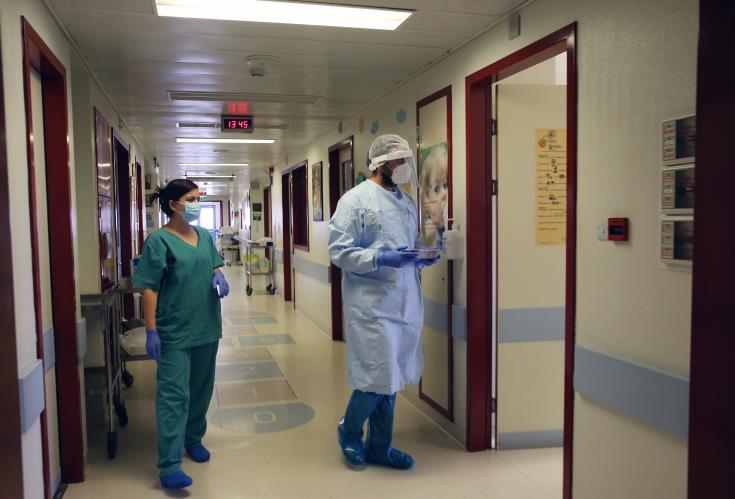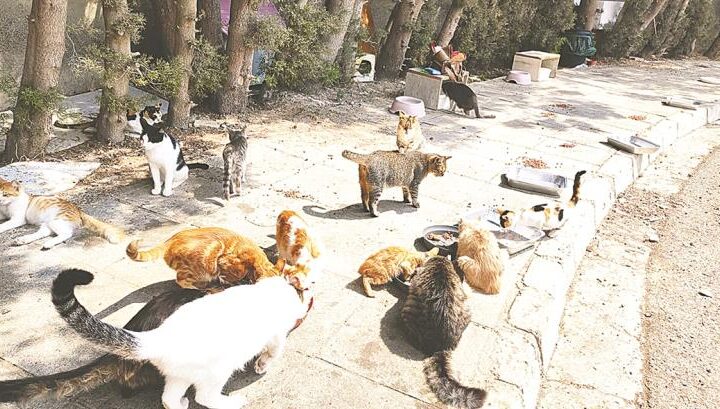One year on from the COVID-19 walking nightmare, the government seems to be losing its resolve to tackle the many-spiked monster turning us into prisoners in our own country.
In presenting his good measures, bad measures routine, Health Minister Constantinos Ioannou fired a half-hearted plea for people to behave and abide by the rules for a while longer.
Although the island’s second national lockdown within a year is less severe than the first, people are not in the mood to follow the guidelines – they are suffering ‘lockdown fatigue’.
Authorities have conceded that an explosive cocktail of a rampant new COVID variant from the UK and Cypriots disregarding health protocols of social distancing and mask-wearing fuels a resurgence of the virus.
Limassol is a prime example of the message not getting through about restricting social contacts.
Now the hottest of hotspots, Limassol’s COVID-19 landscape is redder than the surface of Mars; it is the epicentre of this surge.
It is the blast site of the second wave washing across the country, carried along by people in no mood to protect the greater good.
A lack of caution has also enabled the lethal UK variant to get a foothold and spread its tentacles far and wide.
This more virulent strain accounts for one in four coronavirus infections, responsible for younger people becoming more seriously infected.
The only way to contain the more potent strain is to limit contacts and stay behind closed doors as much as humanly possible.
Last month, the government seemed to be getting a handle on the virus spike when daily infectious fell into double digits.
But the government conceded that lockdown measures haven’t worked because many Cypriots have stopped buying into the self-protection message.
Evidence suggests the COVID-19 spike feeds on transmission within the family environment and the workplace, tell-tale signs the rules are smashed into tiny pieces.
The younger generation, which thrives on social gatherings and meeting up in groups, is not listening.
And the government, pressured by a broken economy and societal fatigue, pulled the trigger too quickly.
In opening up the retail sector, allowing people back to work and more students returning to school, something had to give.
Cabinet unlocked the hospitality sector to allow more freedom, but COVID-19 cases stayed stubbornly high in recent weeks.
Some scientists argue the authorities have rolled the dice to allow the hospitality sector to open next week by welcoming customers seated outdoors.
To help accommodate bars, restaurants and cafes opening, the night-time curfew will roll back from 9 pm to 11 pm.
Although primary schools in Limassol will shut for two weeks and middle schools will not operate just yet, the easing of lockdown gives the impression the danger is over.
Bullied
It feels like people’s disenchantment has bullied the government into surrendering its tough-love approach to defeat the virus.
How else would you explain, allowing hospitality to open while hospital admissions and daily infections go in the wrong direction?
Hospital COVID wards are starting to fill up again while the age of those patients is becoming younger.
After containing the pandemic, Cyprus – with Limassol’s help – moved swiftly up the COVID-19 table with its cases (244.5) per 100,000 over seven days, the fourth worst in Europe.
Not the best advert in the world to charm all those lovely British and Israeli tourists to our shores.
It took Cyprus until October to reach 2,000 total infections; now, it is well on the way to surpassing 40,000 before the end of March.
Cyprus is in a race against time to contain the virus by getting its general population vaccinated and conducting mass testing to keep tabs on it.
As the government relies on a cumbersome European Union to order and purchase COVID vaccines, the rollout has been slow.
More vaccines are becoming available, but it is questionable whether Cyprus has the infrastructure, logistics and personnel to go any faster.
Knowing a jaded public isn’t abiding by the protocols, the government could get tougher in fining more individuals and businesses for breaking the law.
As this would make it unpopular, the government prefers quiet persuasion, which Cypriots aren’t known to be receptive to.
In its softly, softly approach, the Health Minister has decreed that up to six people from different households can meet up in parks and public spaces as long as they wear a mask.
It feels like another opportunity for Cypriots to bend the rules in a universe of their own making.










